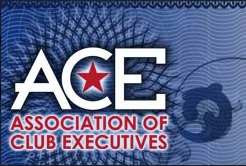*Story by Angelina Spencer-Crisp
A judge ruled last week that California’s Proposition 22, which allows businesses and workers to decide if they prefer to be independent contractors, is unconstitutional and unenforceable.
Uber, Lyft and DoorDash spent approximately $200 million campaigning for the law, which was approved by voters in a ballot initiative known as Proposition 22. This was after the state passed AB 5, which determined gig economy workers to be “employees” but also “carved out” exemptions to the employee law for hospital aid workers, hotel maids, and agricultural workers, to name a few.
Uber has vowed to appeal the ruling, and this will set the stage for an interesting legal battle because Judge Frank Roesch ruled that P22 violates the power of California’s legislature to regulate workers injury compensation, and violates a constitutional provision that limits laws to a single subject. Language was added into the bill that prevented workers from unionizing.
But not so fast, say some sources because California courts are typically loathe to overturn ballot measures or going against ‘the will of the people’.
The companies may win a stay, which means they can conduct business as usual while the case drags through the courts for up to a year.
Meanwhile, a version of AB 5 was slipped into the federal Protecting the Right to Organize (PRO) Act and then a portion of it placed into the Congressional “Infrastructure Bill.” This, too, will take months to wind its way through the Congressional cog.
WI JUDGE RULES:
SBA Must Give Strip Clubs Second Round Of PPP Loans
In a win for adult clubs, a Wisconsin judge ruled last week that 49 strip clubs cannot be excluded from the U.S. Small Business Administration’s second round of Paycheck Protection Program loans, finding that loans to venues that feature strippers are consistent with the PPP program’s pandemic purpose.
U.S. District Judge Lynn Adelman’s order grants an April 28 motion for a preliminary injunction in a suit lodged by lead plaintiff Camelot Banquet Rooms Inc. According to Law 360, the judge also ruled for a smaller group of Wisconsin strip clubs in an earlier suit, during the first PPP funding round. The SBA’s guarantee authority for first-draw and second-draw loans has totaled nearly $814 billion. The judge ruled that the erotic dance entertainment presented by the strip clubs, is a form of sexually explicit expression protected by the First Amendment’s free speech clause.
Adelman wrote that Congress may sometimes place speech-related conditions on the receipt of federal funds, but this is not a limitless power. He highlighted a 1972 U.S. Supreme Court decision in Perry v. Sindermann, particularly that the government “may not deny a benefit to a person on a basis that infringes his constitutionally protected interests — especially his interest in freedom of speech.”
“When a law that grants billions in benefits to a wide and diverse swath of businesses excludes a single industry that offers a controversial form of expression, based on an unstated reason, that would not further the law’s general purpose and would also apply to a large percentage of eligible businesses,” Judge Adelman wrote, “the exclusion is fairly characterized as being ‘aimed at the suppression of a dangerous idea’ within the meaning of … government subsidy and benefits cases.”
The judge preliminarily enjoined the administrator of the U.S. Small Business Administration, the secretary of the Treasury, and the SBA’s lending banks from using Code of Federal Regulation 120.110(p), which determines what businesses are ineligible for SBA second-draw loans.
He instructed the government to transmit guarantee authority to the strip clubs’ lenders and take any other action necessary for the lenders to finish processing the second-draw loan applications by 5 p.m. Central Time TODAY.
The 200-page complaint filed April 7 by the club’s attorneys, show that 49 plaintiffs submitted applications for second-draw PPP loans to their lending banks, and many of them received bank correspondence which said strip clubs remain ineligible for PPP loans.
Last year in a suit also brought by Camelot Banquet Rooms, doing business as Silk Exotic Gentlemen’s Club in Milwaukee, and four other Wisconsin strip clubs, Judge Adelman similarly granted a preliminary injunction to the businesses deemed ineligible for the first round of PPP loans, based on a decades-old regulation that denied eligibility to businesses that “present live performances of a prurient sexual nature.”
“The second-draw Paycheck Protection Program does not have a narrow goal that would be undermined by extending eligibility to small businesses that present erotic dance entertainment,” the judge wrote. “The purpose of the program, like the original Paycheck Protection Program, is to provide economic relief to small businesses and other entities in the United States that are struggling during the pandemic.”
Strip clubs are just as likely as other businesses, deemed eligible by the SBA, to experience financial distress, Judge Adelman said. “Extending loans to bars, restaurants, and small entertainment venues that present erotic dance entertainment would be entirely consistent with the purpose of the second-draw program.”
The strip clubs are represented by Bradley J. Shafer and Zachary M. Youngsma of Shafer & Associates PC, Jeff S. Olson of The Jeff Scott Olson Law Firm SC, Jennifer M. Kinsley of Kinsley Law Office and Peter E. Garrell of Fortis LLP.
The federal government is represented by Carter B. Stewart of the U.S. Attorney’s Office for the Eastern District of Wisconsin.
The case is Camelot Banquet Rooms Inc. et al. v. U.S. Small Business Administration et al., case number 2:21-cv-00447, in the U.S. District Court for the Eastern District of Wisconsin.





























